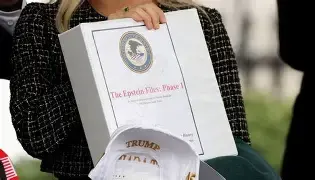Dismantling Global Hindutva: Part-3
- Aslam Abdullah
- Sep 12, 2021
- 4 min read
Updated: Jul 29, 2025

The three-day scholarly conference on dismantling global Hindutva concluded with the determination to contain the threats to human society by an emerging nexus among white supremacists, Zionist extremists, and Hindutva fanatics. The most dramatic moment came when Brij Maharaja, an unscheduled speaker from South Africa, described part of the Indian diaspora in the United States as a danger to Hinduism and human society. He explained that Hindutva agents in the US had turned Hinduism into a divisive and hierarchical faith.
Meena Dhandha, University of Wolverhampton, and Jyotsna Kapoor reassured the audience that the academic world would not sit quietly and speak against terror, violence, and injustices in the concluding remarks.
The third day's inaugural session, moderated by Rohit Chopra, focused on Hindutva Propaganda and the Digital Ecosystem.
Cyril Sam, an Indian journalist, and writer, spoke of the alliance between Facebook and Hindutva and gave details of the major social media training provided to RSS and BJP fanatics. It was like a platform capture by the Hindutva, he added.
Dr. Deepa Sundaram focussed on the BJP media strategy through its cells and bots and highlighted brutal suppression, disruption, and identification of its opponents as anti-nationals. She explained that the media serves the RSS version of Hinduism. Based on her tracking of several Hindutva groups on social media, she concluded that debates around issues that help RSS propaganda against secularism are launched to discuss Hindu Salil Tripathi, an award-winning journalist, talked about the consequences faced by those who oppose Hindutva. Through its army of IT zealots, the BJP spread with speed its narrative that the Hindu majority was a minority and a victim of evil forces. It was no different than the techniques used by Hitler and other dictators to pursue their ideology of superiority.
David Ludden applauded the organizers for hosting a transnational conference on an issue that would change the political map of the universe.
The fascinating session of the day was on Hinduism and Hindutva.
Opening remarks came from T.M. Krishna, a world-renowned musician and writer who described Hindutva as a juggernaut of violence.
T. M. Krishna, a world-renowned musician and reshaping art and write,
Juggernaut of violence all over the world.
He raised three core issues around the nature of the relationship between Hinduism and Hindutva. First, is Hinduism different from Hindutva? Second, is Hindutva an upper-caste movement to save its supremacy? Third, is Hinduism completely different from Hindutva? In his view, the three issues deserve exploration to understand better the changes taking place in India.
The moderator Balmurli Natrajan quoted a Pew research study, said that Hindutva in India finds its supporters in American Hindus whose only 6 percent draw its values from religious scriptures. This diaspora group accepts the RSS narrative that Hinduism, with 80 percent Hindus in India, is in danger.
Professor Shana Sippy from the University of Minnesota and Sallaja Krishnamurthy asserted that Hindutva is Hinduism and believes in Hindu supremacy worldwide. It ignores issues of Caste and social justice and uses violence to achieve its objectives.
Stoking fear, Hindutva identifies Muslims and Dalits as others and enemies
Raja Bhattar from the University of Chicago talked about the contradictions within Hinduism and admitted that he had problems using chants such as Jay Shri Ram and Jay Hanuman while committing acts of violence.
The founder of Sadhna and Hindus for Human Rights talked of her struggle of creating an image of Hinduism free from Caste and violence. She identified herself as a practicing Hindu but denoted the Jay Shri Ram chants as murder chants in the present time.
She asserted that Caste, Patriarchy, and fascism dominate the Hindutva movement.
The last session, moderated by Dr. Mannan Ahmed, on Islamophobia, White Supremacy, and Hindutva, heard speakers such as Anjali Arondekar of UC Santa Cruz, Professors Anumpa Rao, Demetrius Eudell, and Deepa Kumar, the leading authorities on contemporary issues concerning supremacy.
Professor Anjali Arondekar talked of the inherent contradictions of Hindutva within the context of Caste and religious identities, while emphasizing the importance of agitation and protest. She defined the distinct features of Hindutva and White Supremacists and lamented that fringe elements have become dominant in India. She said that Hindutva used a jingoist and seductive language to serve its interests. In her view, India needs a revolution to fight emerging challenges.
Professor Demetrius Eudell traced the repercussions of supremacist ideologies on societies and discussed the relationship between political jingoism and religion.
Professor Deepa Kumar emphasized that opposition to the conference had brought scholars from different parts of the world together to create wider solidarity. In addition, she applauded that several civil rights organizations organized briefings for Congress on academic freedom and dangers from Hindutva.
Dr. Deepa was expected to talk about Islamophobia at Manipal University in India, but the university canceled the event at the intervention of Hindutva elements. Instead, the INSAF, India, would have her lecture on their website. She talked about the common goals and strategies of White supremacy, Hindu supremacy, and Zionism.
They attempt to silence dissenters, build paranoia and promote racism. Hindutva knives were against Muslims and Dalits, white supremacists were after non-Whites, and Zionists targeted the opponents of Israel, mainly Arabs and Muslims.
Meena Dhandha, University of Wolverhampton, and Jyotsna Kapoor, Southern Illinois University, concluded the session with an optimistic note promising that the struggle against racists, bigots and hate-mongers would continue.



Comments